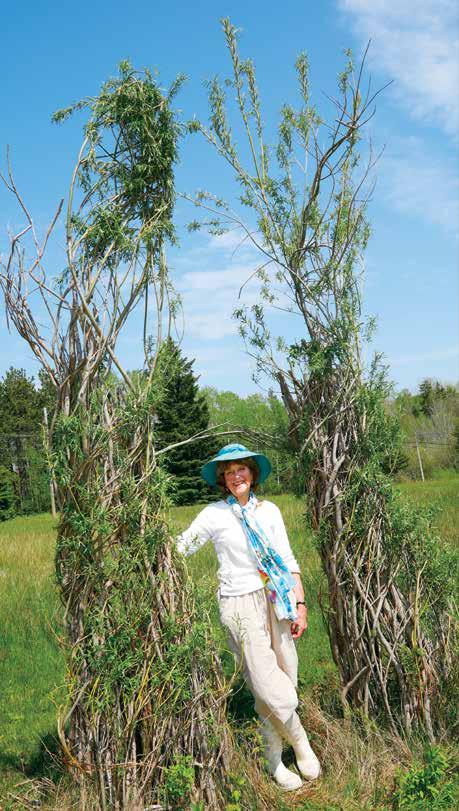
3 minute read
Editor’s Letter
Flowers for the future
Istepped out onto my front step and inhaled the fragrance of the magenta blossoms on my crab apple trees. There was a scattering of petals that had fallen overnight onto the curve of the paved path that winds under the canopy of flowering branches. They are the last of the trees to bloom on my property as spring resists its transition to summer. I will be sad to see them go. I needed a moment with those blossoms on that morning. Like everyone else I had talked to in recent days, the pandemic restrictions were really starting to wear on me. I could feel the anxiety of an uncertain summer swirl in my belly and collide with a sadness that had embraced my entire body since hearing the news out of Kamloops, B.C. where the remains of 215 children were discovered on the site of a former Residential School. Not knowing enough about the rituals of death for our First Nations people, I wondered if their little souls had been in limbo for all those years that their bodies were hidden away to be forgotten by the people who put them there or if there was always a spirit watching over them, waiting until what was left could be reunited with the families who never forgot. As weighty as the sadness is, I was feeling shame like I had never felt before.
That same morning, I browsed through my social media and stopped to read a post made by Chief Andrea Paul of the Pictou Landing First Nation. The story that had shocked our nation was a truth that her people had always known. While it would have been very easy to respond with the vitriol of anger and grief, that morning Andrea was planting the seeds of hope and asking for help. She wanted flowers, 215 pots of flowers, one in the memory of each child who took their last breaths brave but alone.
Those pots now line the main street of the Pictou Landing First Nation community. They start just in front of the school where children were safely back in their classrooms as pandemic restrictions started to ease, trying to make sense of the fate of children just like them from a time not that long ago. The pots of flowers make a rainbow of colour, one after the other they line the sidewalk in front of homes and businesses. A few of the smallest pots are placed at the base of a monument adjacent to the Band office. A place to stop and remember what was taken from them. But instead of an inscription of anger, the words carved into the monument speak of honour and hope for future generations: “an inspiration for Canadians to learn about the legacy of residential schools.” We have all struggled with the restrictions of movement and isolation from our families during the days of the pandemic. And while I respect how challenging this time has been for all of us, it’s a reminder of how many people in our communities will continue with their long history of being isolated by a prejudice that most of us will never fully understand. But not understanding is our call to action, to listen, to learn, to question, and to change. Now that we are free to move from community to community, consider taking a drive to Pictou Landing First Nation. Park your car and walk the rainbow of flowerpots to acknowledge what was, then go home and plant your own flowers of hope for the future. Thank you for letting me share my thoughts in this space. Wishing you and your family a wonderful summer At Home on the North Shore.
editor’s
LETTER
PHOTO BY NORTHOVER PHOTOGRAPHY










